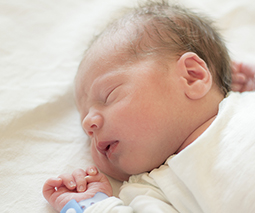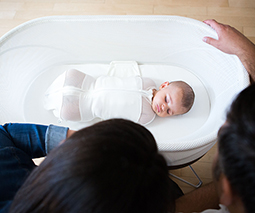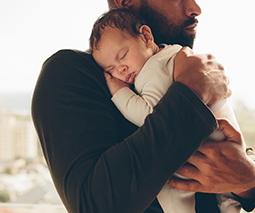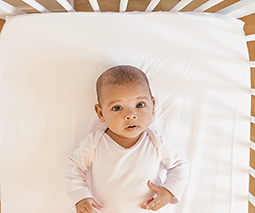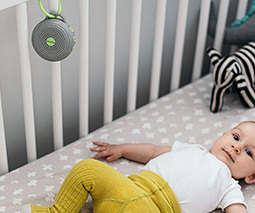Why your newborn makes grunting sounds during the night
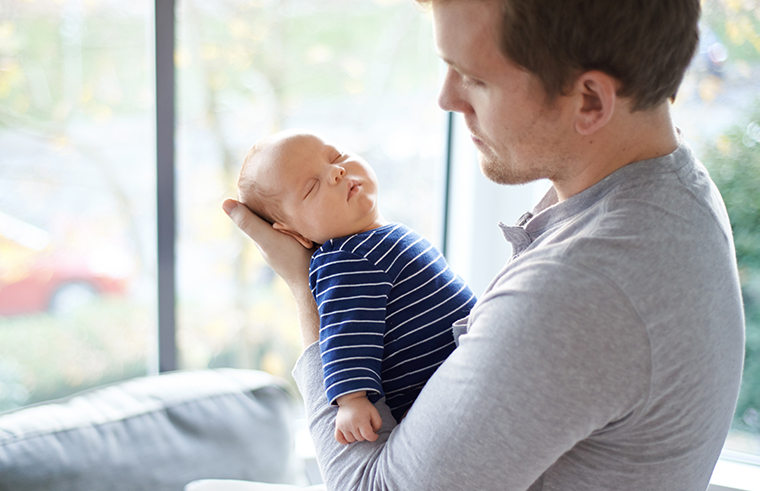
When the midwife told me to consider keeping our first son in the hallway when we got home, I looked at her like she was crazy.
Our baby was just a few days old. So tiny. So small. So vulnerable.
There was no way I was letting him out of my sight let alone letting him sleep in the hallway where anyone could steal him!
Was she nuts?
A symphony of sounds
Well, no. As it turns out, our midwife was completely on the money. Little newborn babies are surprisingly loud. Terrifyingly so. And not just when they are wailing.
Despite their tiny form, babies can make the craziest sounds during the night. Hence my midwife’s wise words.
So what can you do about it? Especially if you are like me and the idea of moving your precious new bundle out of sight fills you with dread?
Understanding what the grunts mean is a good place to start, and as Samar Bashour, a paediatrician at Cleveland Clinic Children’s Hospital, told The Bump, there are several reasons our littlest specimens make so much noise.
Firstly, newborn babies breathe through their noses, and their tiny air passages means there isn’t a lot of room for the sound to come out. So, every noise a bub makes is amplified.
The second thing to understand is that babies don’t go into full REM (deep) sleep until they are six months old. So while a newborn should be sleeping a lot, it’s very light sleep – which is why she will move around a bit more, and her body is slightly more ‘awake’ than a baby who is fully at rest.
So what can you do about it?
According to mothercraft nurse Chris Minogue, the noises shouldn’t always raise concern.
“Noisy newborn babies are completely normal. They are stretching and growing and making a lot of noises that you haven’t heard before – especially if this is your first baby.”
Chris says it’s pretty hard to say what each sound means exactly, but gurgling noises can often be attributed to baby’s small stomach and the fact that they have lots of feeds.
“Sometimes the grunting can be the sound of a poo, or your little one passing gas. Newborn babies have tiny torsos compared to the rest of their bodies and they don’t have much mobility yet, either,” says Chris. “This means that gas from all that breastfeeding and lying on their back can get trapped.”
They should grow out of it by six to 12 weeks
According to Chris, most of these noises should ebb out by about six to 12 weeks.
“If they don’t grow out of it, you will probably also have a very unsettled baby with a few other issues going on too. This is the point I would advise seeing your doctor or child health nurse.”
And maybe just invest in a pair of ear muffs for a couple of months, too!
 Need some more baby sleep advice? Our Parent School sleep experts can help. Click to find out more or book a one-on-one session.
Need some more baby sleep advice? Our Parent School sleep experts can help. Click to find out more or book a one-on-one session.

